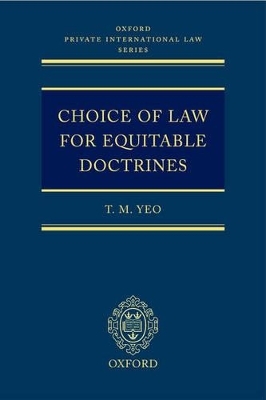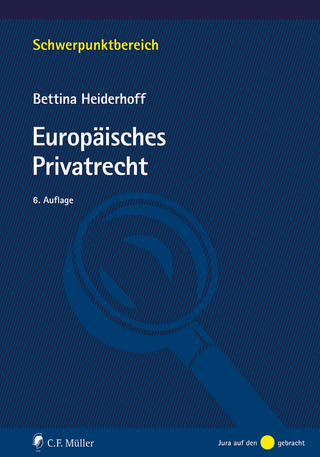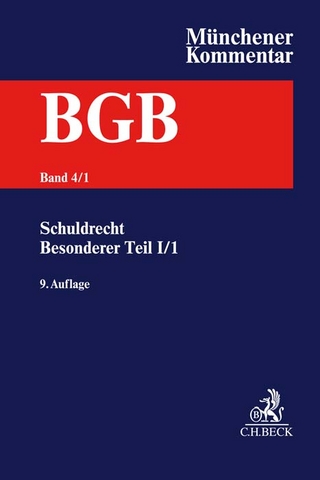
Choice of Law for Equitable Doctrines
Seiten
2004
Oxford University Press (Verlag)
978-0-19-927492-5 (ISBN)
Oxford University Press (Verlag)
978-0-19-927492-5 (ISBN)
Deals with the legal questions relating to the applicable law that arise in cross-border litigation when litigants invoke the principles of English equity or analogous doctrines from other jurisdictions. This book analyzes the various different ways in which equitable doctrines can be characterised.
It is an unfortunate feature of the common law conflicts landscape that, for all its sophistication, the relationship between the equitable principles of the forum and the forum's choice of law process remains unclear. This book examines this relationship from the perspective of English law, taking account of the impact of European law.
What law applies when litigants invoke the principles of equity of the forum or analogous doctrines in foreign law? This book suggests that there is nothing inherent in the invocation of the forum's equitable jurisdiction or in the nature of equitable discourse that renders the application of the forum's equitable principles inevitable. It then considers whether a different methodology should be adopted for equitable doctrines, and concludes that this should not be the case. Thus, unless the issue involves the application of fundamental public policy, mandatory forum laws or the procedure of the forum, equitable doctrines of any country should be subject to the same choice of law analysis like other principles of substantive law.
The book then analyses equitable doctrines within the traditional choice of law categories of property, contracts, torts and restitution in three steps: first, many equitable doctrines may be regarded as substantive and not procedural; secondly, property and obligations issues raised by equitable doctrines may be segregated; and thirdly, by considering the functions of the respective doctrines, equitable obligations may be analysed as contractual (or based on agreement), tortious (or based on wrongs) or restitutionary (or based on unjust enrichment).
It is an unfortunate feature of the common law conflicts landscape that, for all its sophistication, the relationship between the equitable principles of the forum and the forum's choice of law process remains unclear. This book examines this relationship from the perspective of English law, taking account of the impact of European law.
What law applies when litigants invoke the principles of equity of the forum or analogous doctrines in foreign law? This book suggests that there is nothing inherent in the invocation of the forum's equitable jurisdiction or in the nature of equitable discourse that renders the application of the forum's equitable principles inevitable. It then considers whether a different methodology should be adopted for equitable doctrines, and concludes that this should not be the case. Thus, unless the issue involves the application of fundamental public policy, mandatory forum laws or the procedure of the forum, equitable doctrines of any country should be subject to the same choice of law analysis like other principles of substantive law.
The book then analyses equitable doctrines within the traditional choice of law categories of property, contracts, torts and restitution in three steps: first, many equitable doctrines may be regarded as substantive and not procedural; secondly, property and obligations issues raised by equitable doctrines may be segregated; and thirdly, by considering the functions of the respective doctrines, equitable obligations may be analysed as contractual (or based on agreement), tortious (or based on wrongs) or restitutionary (or based on unjust enrichment).
T M Yeo is Associate Professor in the Faculty of Law, National University of Singapore
Introduction ; 1. Relevance of Choice of Law Analysis for Equitable Doctrines ; 2. Relationship between Equitable Doctrines and Choice of Law ; 3. Characterization ; 4. Substance and Procedure ; 5. Property and Obligation ; 6. Property ; 7. Contracts and Agreements ; 8. Torts and Wrongs ; 9. Restitution and Unjust Enrichment ; 10. Conclusion: Equity in Domestic Law and Choice of Law
| Erscheint lt. Verlag | 9.9.2004 |
|---|---|
| Reihe/Serie | Oxford Private International Law Series |
| Zusatzinfo | 4 figures |
| Verlagsort | Oxford |
| Sprache | englisch |
| Maße | 164 x 241 mm |
| Gewicht | 770 g |
| Themenwelt | Recht / Steuern ► EU / Internationales Recht |
| Recht / Steuern ► Privatrecht / Bürgerliches Recht ► Internationales Privatrecht | |
| Recht / Steuern ► Wirtschaftsrecht ► Gesellschaftsrecht | |
| ISBN-10 | 0-19-927492-4 / 0199274924 |
| ISBN-13 | 978-0-19-927492-5 / 9780199274925 |
| Zustand | Neuware |
| Haben Sie eine Frage zum Produkt? |
Mehr entdecken
aus dem Bereich
aus dem Bereich
1. Halbband: §§ 433-480, CISG
Buch | Hardcover (2024)
C.H.Beck (Verlag)
119,00 €


